Resigning from a faculty position can be a significant step in your academic journey, and crafting the right letter is essential for a smooth transition. Whether you're moving on to a new opportunity or taking a different path, expressing your gratitude and professionalism is key. In this article, we'll guide you through the important elements of writing a resignation letter tailored for university faculty, ensuring you leave a positive impression. So, let's dive in and explore the best practices to help you articulate your decision with clarity and respect!
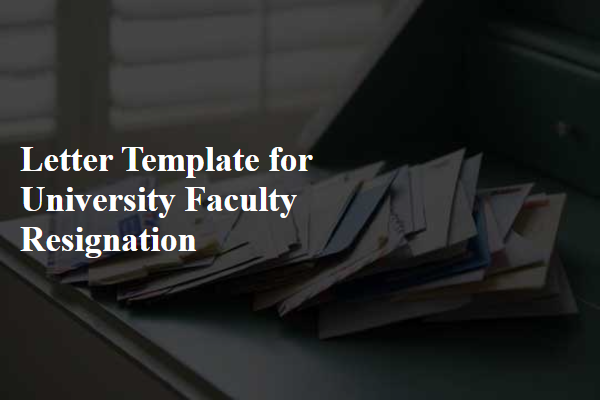
Clear Intent Statement
A faculty member's resignation from university positions often involves a formal intent to ensure clarity. This resignation may stem from personal circumstances, career advancements, or educational pursuits. The resignation statement should clearly specify the faculty member's name, department, and position held. Notable dates, including the effective resignation date and last day of classes, are essential for administrative processing. Moreover, the statement can reflect appreciation towards colleagues and the institution while maintaining professionalism. Such clarity aids in transitioning responsibilities and maintaining relationships within the academic community. The university often requires this kind of formal documentation as part of its human resources practices.
Notice Period and Last Working Day
Resignation from a university faculty position involves formally notifying the institution about your intent to leave. Key components include the notice period, typically aligning with institutional policies, detailing the final working day, and expressing gratitude for past experiences. The notice period often spans from two weeks to several months, depending on contractual obligations. For example, if a faculty member resigns on March 1st and provides a one-month notice, the last working day would fall on March 31st. Acknowledging the impact on students and colleagues reinforces professionalism. Communication methods can include email, letters, or in-person discussions, depending on university norms.
Expression of Gratitude
A university faculty resignation can be a significant moment in one's academic career, often accompanied by mixed emotions. Faculty members typically express gratitude for the opportunities provided by the institution, highlighting meaningful experiences such as mentorship, collaborative research projects, and engagement with students. The impact of the faculty's contributions to the departmental community, shared academic events, and student mentorship initiatives are acknowledged. Faculty may reflect on their personal and professional growth experienced during their tenure at the university, fostering lasting relationships with colleagues and students. The transition might be aimed towards new academic pursuits or personal projects, with best wishes extended to the department as it continues its mission.
Offer to Assist with Transition
A faculty member's resignation can impact the department significantly, causing disruption in course offerings and student guidance. A generous offer to assist with transition efforts can foster effective communication and maintain professional relationships. For example, a professor leaving an institution may volunteer to help train their successor, prepare course materials, and ensure that students are informed and supported throughout the change. Additionally, the faculty member may share insights about ongoing research projects or committee responsibilities, providing a smoother handover that can benefit both the department and the incoming faculty. Such collaboration can facilitate continuity in education and contribute positively to the institutional culture.
Contact Information for Future Correspondence
Contact information for future correspondence is essential for maintaining professional relationships post-resignation. Including a current email address, such as johndoe@example.com, ensures that colleagues or administration can reach out for future collaboration or reference requests. Providing a personal phone number, for instance, (123) 456-7890, offers direct communication options as needed. Additionally, an alternative mailing address, such as 123 Maple Street, Anytown, State, 12345, may facilitate official correspondence or invitations to university events. Clear and accessible contact information promotes continued engagement within the academic community despite your departure.

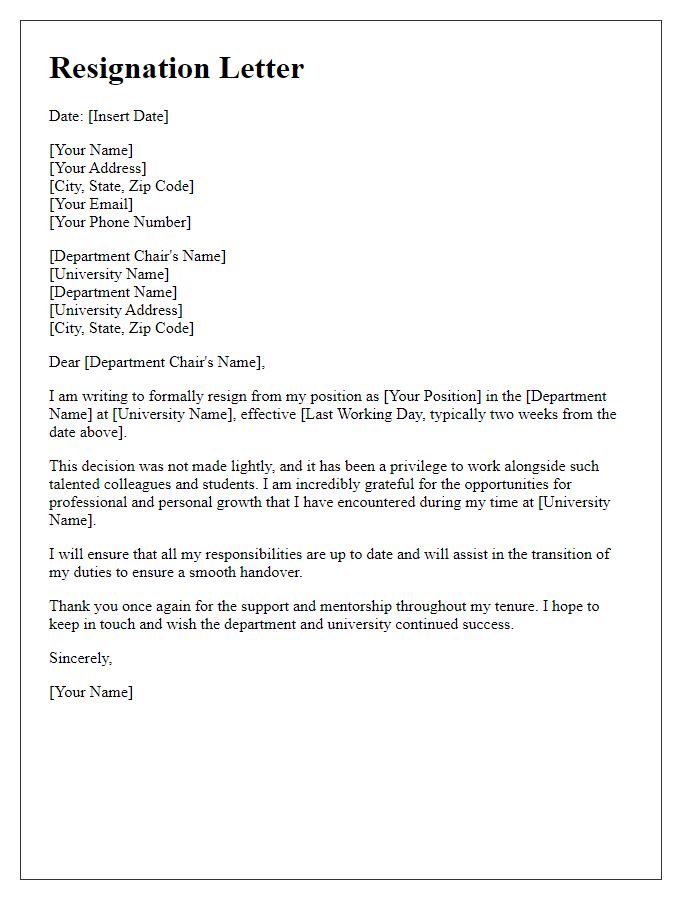
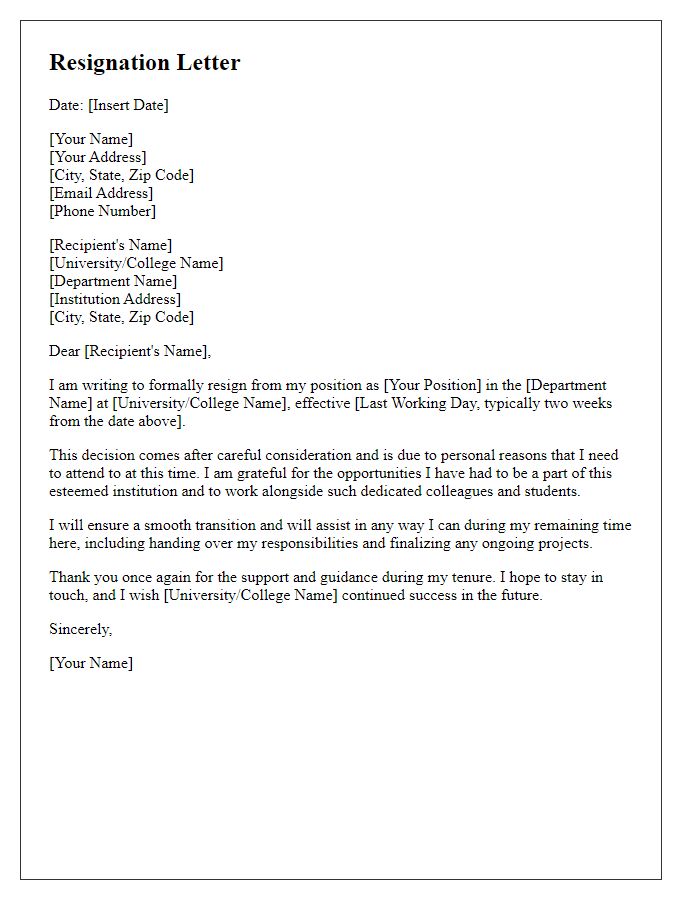
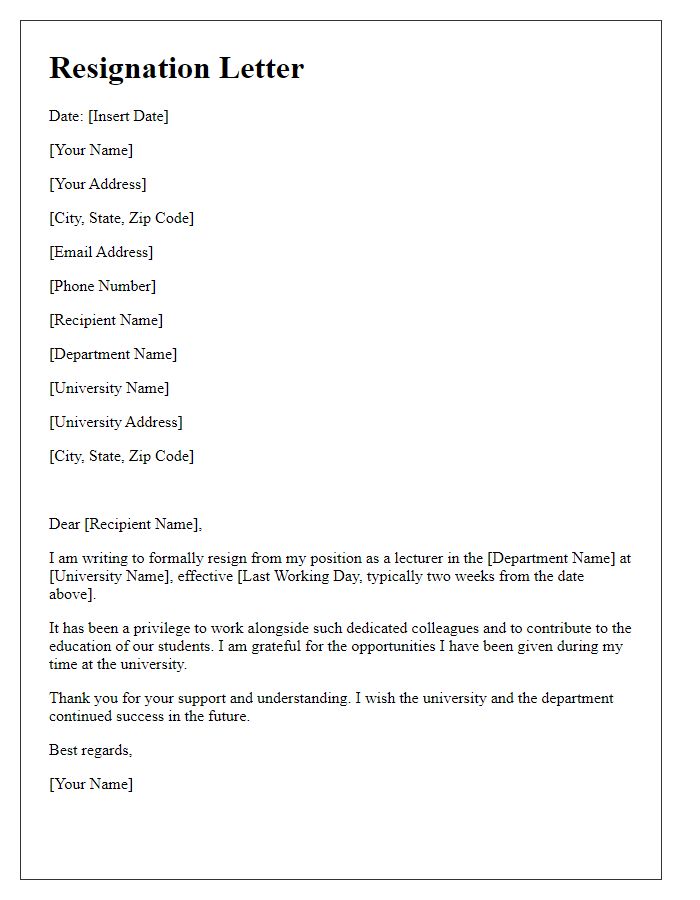
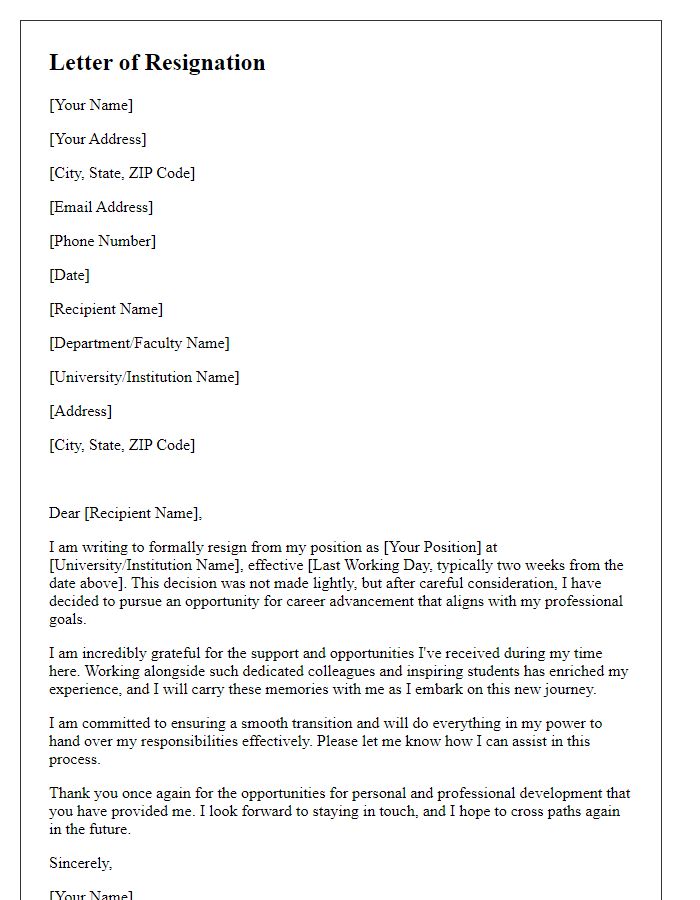
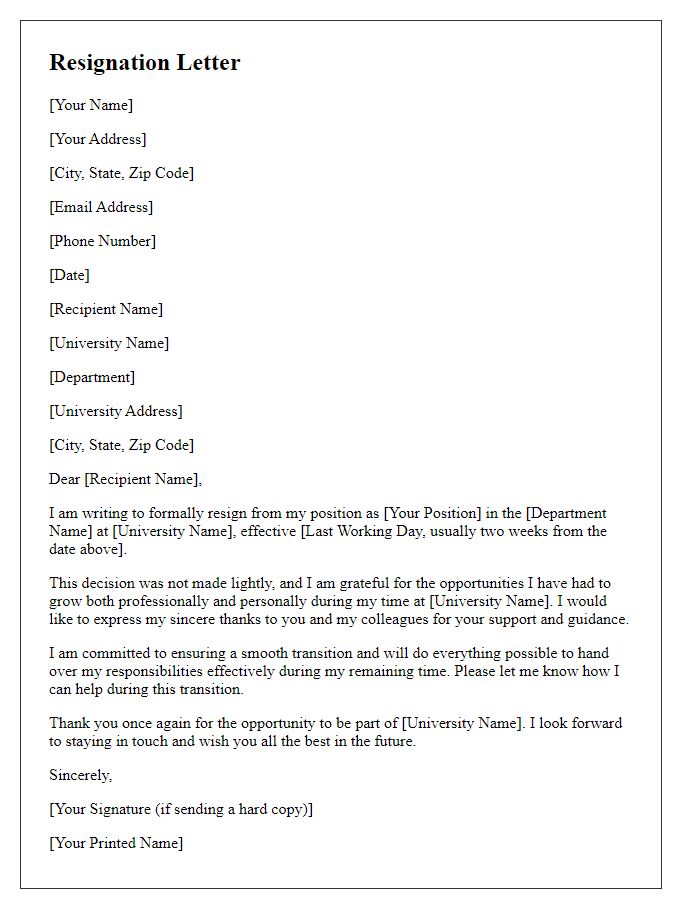
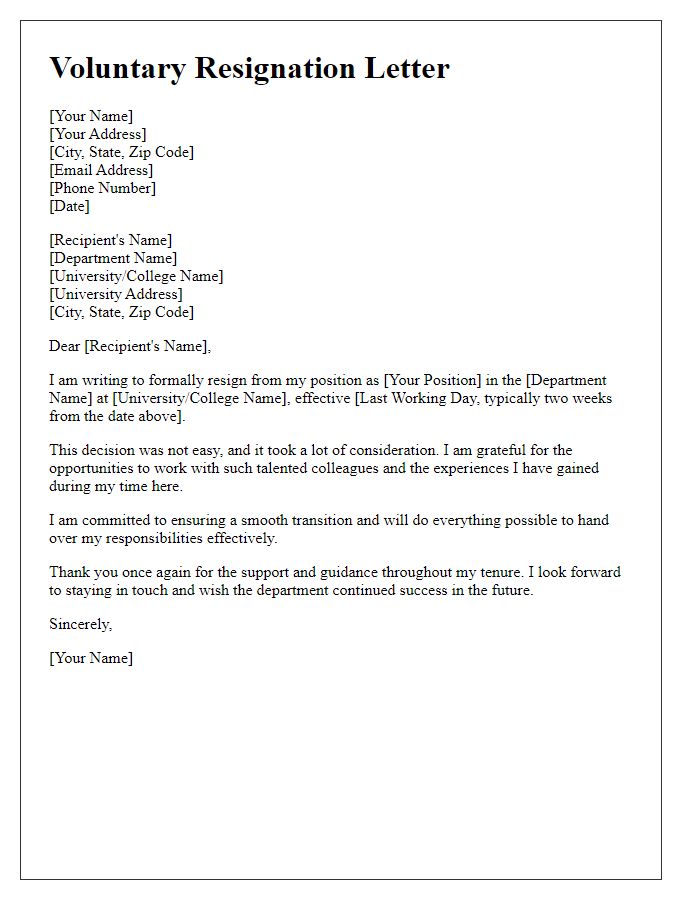
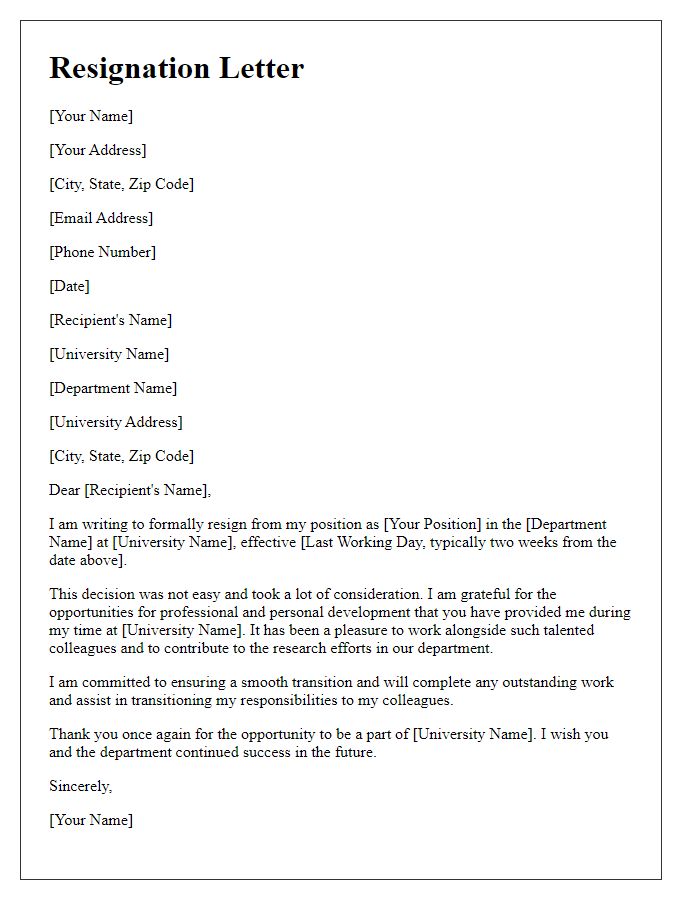
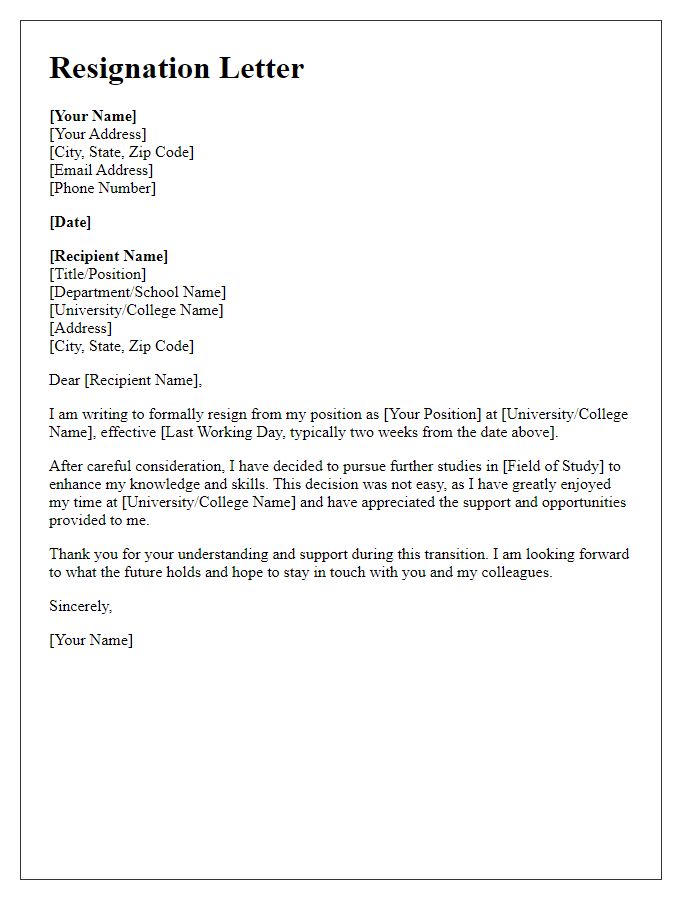
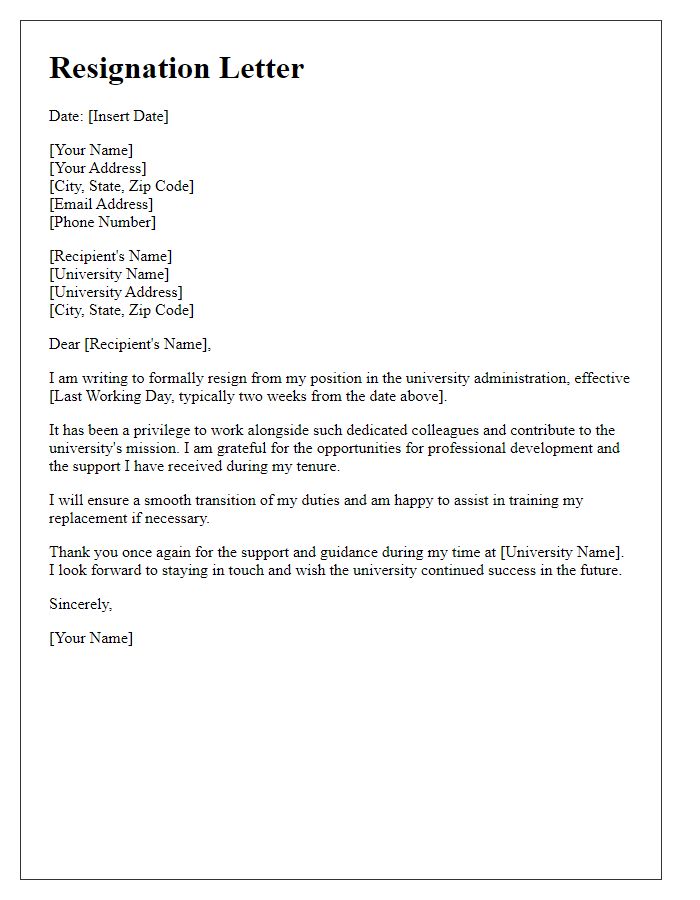
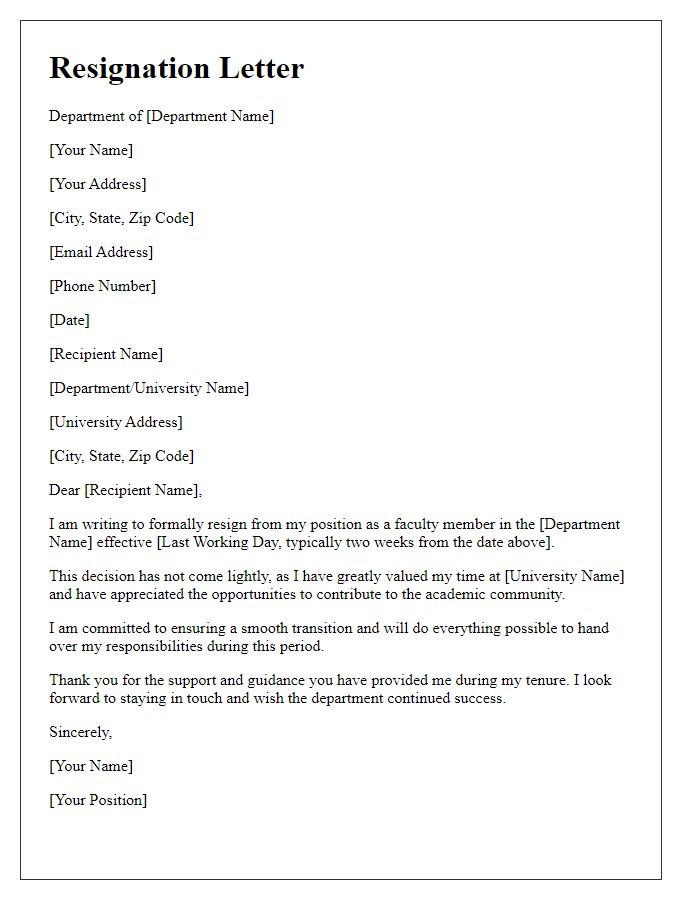

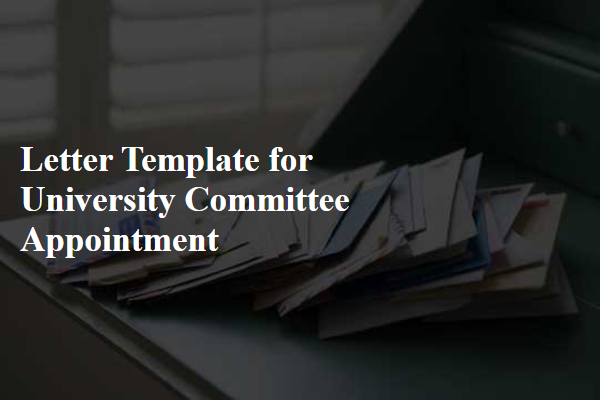
Comments